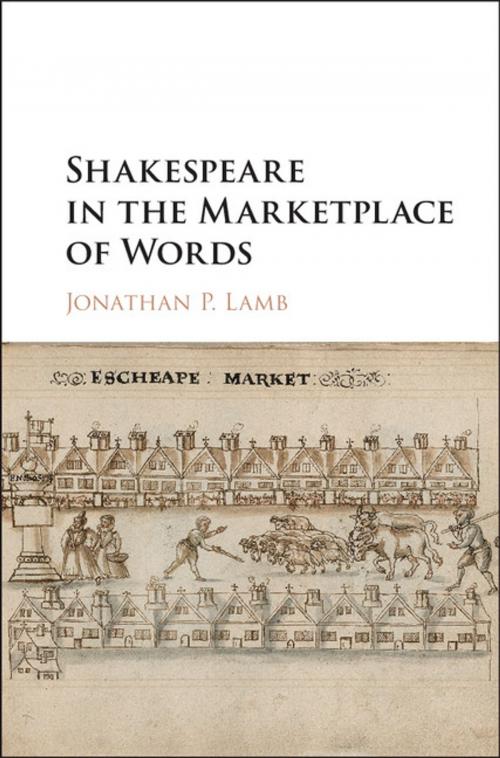Shakespeare in the Marketplace of Words
Fiction & Literature, Literary Theory & Criticism, British, Nonfiction, Reference & Language, Language Arts| Author: | Jonathan P. Lamb | ISBN: | 9781108148047 |
| Publisher: | Cambridge University Press | Publication: | July 6, 2017 |
| Imprint: | Cambridge University Press | Language: | English |
| Author: | Jonathan P. Lamb |
| ISBN: | 9781108148047 |
| Publisher: | Cambridge University Press |
| Publication: | July 6, 2017 |
| Imprint: | Cambridge University Press |
| Language: | English |
Making innovative use of digital and library archives, this book explores how Shakespeare used language to interact with the verbal marketplace of early modern England. By also combining word history with book history, Jonathan P. Lamb demonstrates Shakespeare's response to the world of words around him, in and through the formal features of his works. In chapters that focus on particular rhetorical features in Richard II, The Merchant of Venice, As You Like It, Hamlet, and Troilus and Cressida, Lamb argues that we can best understand Shakespeare's writing practice by scrutinizing how the formal features of his works circulated in an economy of imaginative writing. Shakespeare's interactions with this verbal market preceded and made possible his reputation as a playwright and dramatist. He was, in his time, a great buyer and seller of words.
Making innovative use of digital and library archives, this book explores how Shakespeare used language to interact with the verbal marketplace of early modern England. By also combining word history with book history, Jonathan P. Lamb demonstrates Shakespeare's response to the world of words around him, in and through the formal features of his works. In chapters that focus on particular rhetorical features in Richard II, The Merchant of Venice, As You Like It, Hamlet, and Troilus and Cressida, Lamb argues that we can best understand Shakespeare's writing practice by scrutinizing how the formal features of his works circulated in an economy of imaginative writing. Shakespeare's interactions with this verbal market preceded and made possible his reputation as a playwright and dramatist. He was, in his time, a great buyer and seller of words.















